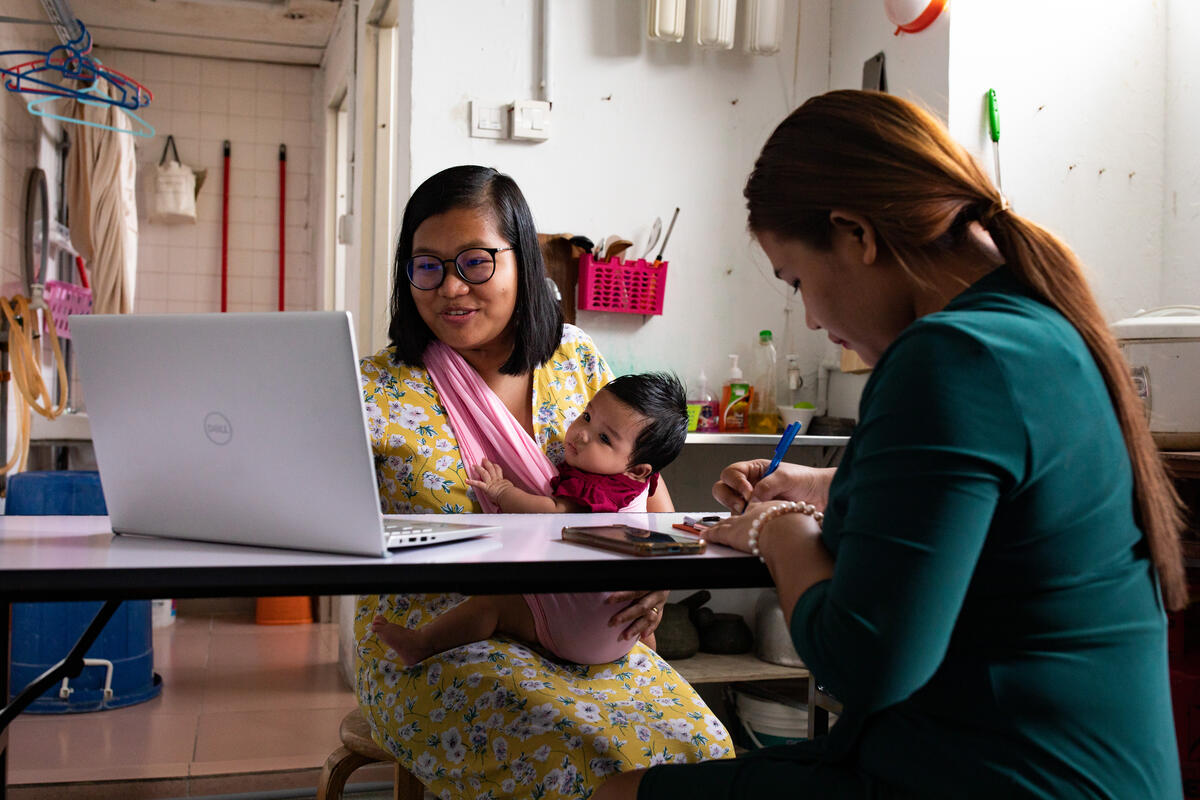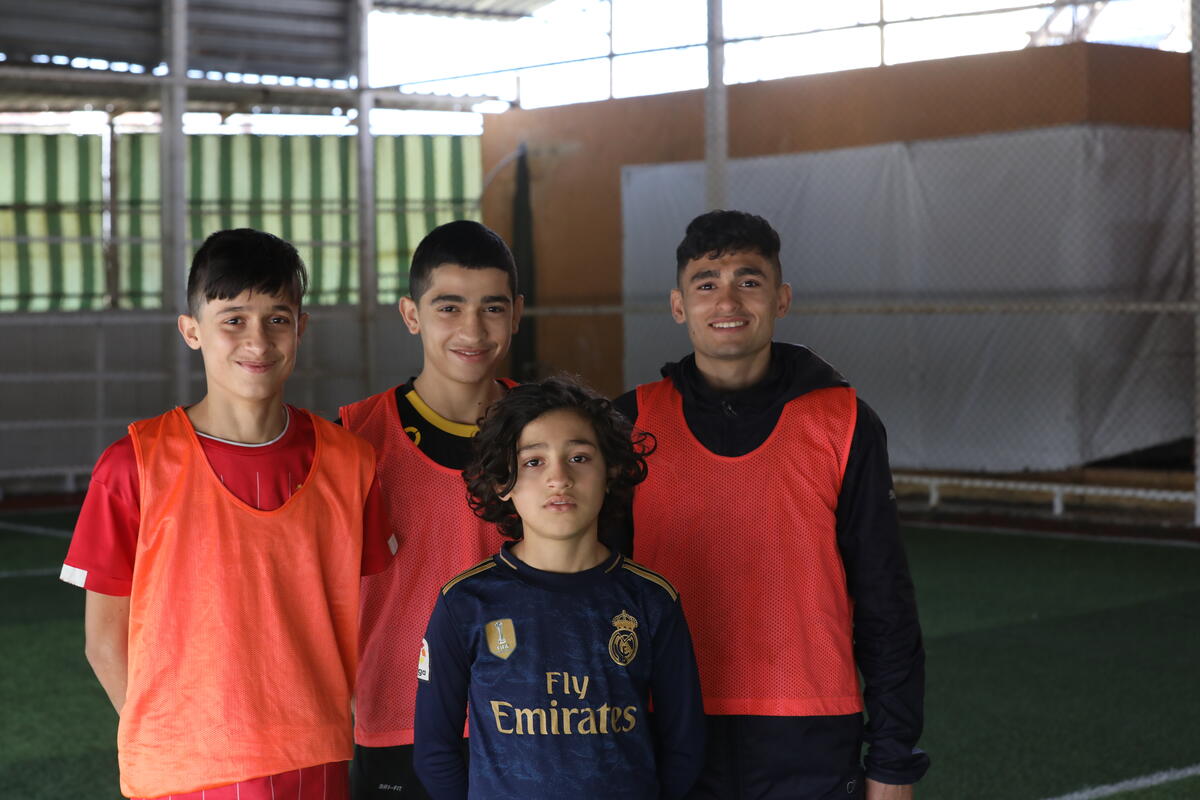In a Pakistan medical centre, pauper patients benefit from refugee initiative
In a Pakistan medical centre, pauper patients benefit from refugee initiative

PESHAWAR, Pakistan, November 28 (UNHCR) - Several years ago, Mohammad Tahir returned to his native Pakistan determined to use the skills he had honed practising as a doctor in Europe to help those unable to afford medical care.
What he found on his arrival was an abundance of commitment among doctors and nurses, and an acute shortage of modern hospital equipment.
"We have very dedicated staff in government hospitals but lack the latest technology, especially in the plastic surgery and burn units," said Doctor Tahir, who runs the units at the Hayatabad Medical Complex in north-west Pakistan.
"Most of the patients here are very poor and cannot bear the expenses of private treatment. Ironically they often arrive here as the result of road accidents, bomb blasts, burn injuries and industrial injuries," he added.
The ability of doctors to treat those injuries was recently dramatically improved by the donation of surgical equipment as part of a joint programme between the government of Pakistan and UN agencies, such as UNHCR, to assist Afghan refugees in Pakistan and the communities that host them.
The Refugee Affected and Hosting Areas (RAHA) initiative acknowledges that more than 30 years of providing a haven to Afghan refugees have taken a toll on certain areas. It seeks to aid those communities through projects that bolster sectors such as health, water and sanitation.
The Hayatabad medical complex is the second largest in the north-west province of Khyber Pakhtunkwha, providing free treatment to Pakistani nationals and Afghan refugees, the latter accounting for 40 per cent of the centre's patients. It is the only government hospital in the province with a fully functional plastic surgery and reconstructive unit and caters to a range of congenital abnormalities, trauma, road accidents and burns.
The equipment provided to the hospital was purchased with a US$170,000 grant under the (RAHA) initiative funded by Germany through the KfW Development Bank. Dr Tahir said the technology had drastically reduced the recovery period after surgery. A patient with a jaw fracture is now able to resume normal activities within 48 hours, where previously the recovery period would stretch to two months.
"The economic situation of the family deteriorates if the breadwinner is sick and lying in bed for weeks. Often they have to take out loans to survive," said Dr Tahir. "With the use of this equipment, the patient in most cases can start their routine work within few days."
Launched in 2009, the RAHA initiative is expected to benefit up to 2.5 million Pakistanis and Afghans. More than 400 projects have been completed since its launch, mainly in the provinces of Balochistan and Khyber Pakhtunkhwa which are both home to high concentrations of Afghan refugees.
"By providing or enhancing basic services for these communities, the RAHA initiatives promote coexistence while improving social services and creating economic opportunities," said Ahmed Warsame, head of UNHCR's office in Peshawar.
For Dr Tahir, his earlier aspirations have been realized. "Now I can treat my patients at the same standards that I have practised in Europe."
By Rabia Ali in Peshawar, Pakistan








